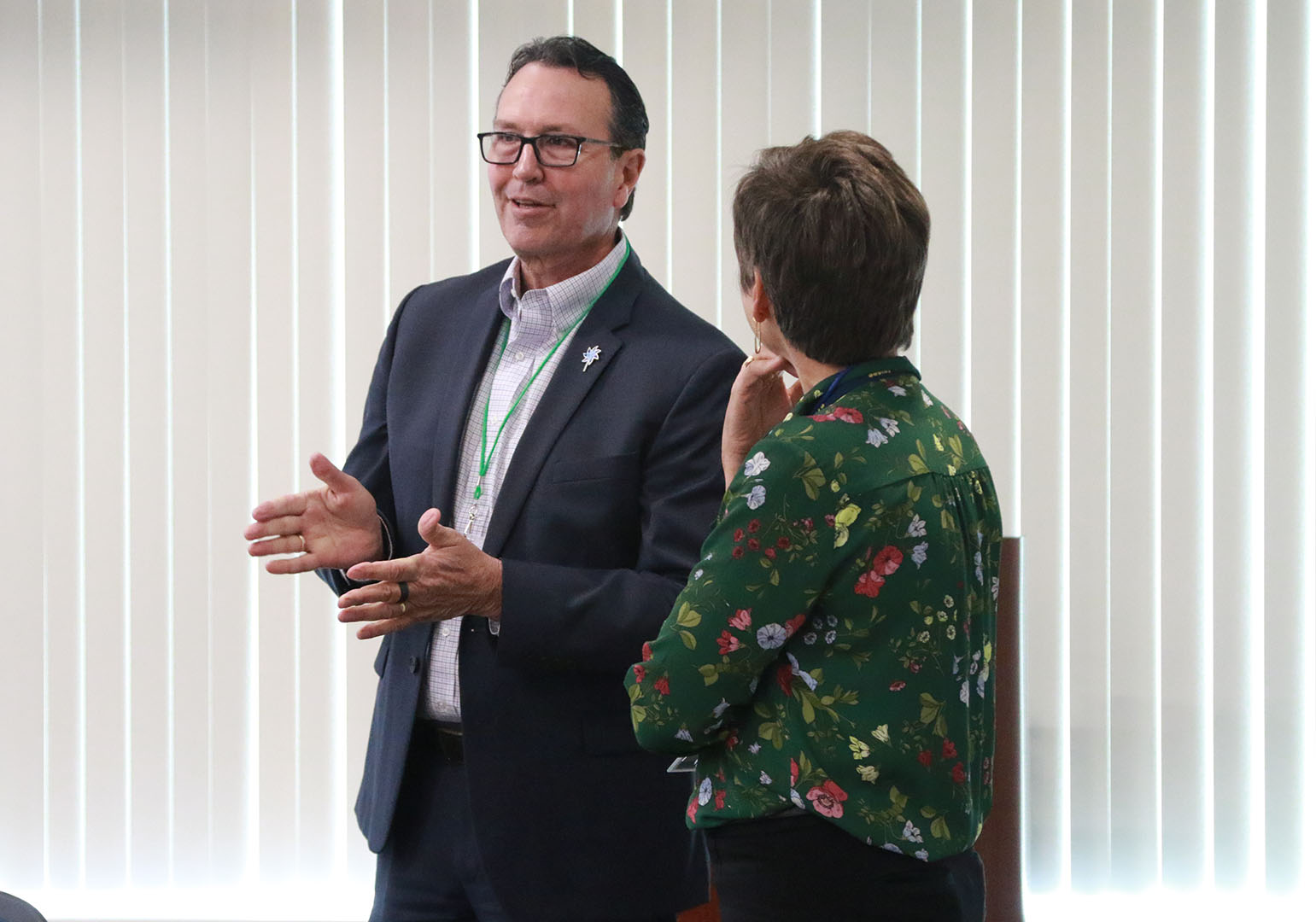
- Associate Commissioner Amanda Ellis of KDE’s Office of Teaching and Learning asked task force members about how Kentucky’s minimum graduation requirements could be adjusted for seniors as a response to the school closures caused by COVID-19.
- One concern raised by the task force is the potential for fatigue on behalf of teachers, parents and students once the newness of NTI begins to wear off.
By Jacob Perkins
Jacob.perkins@education.ky.gov
The Kentucky Department of Education’s (KDE) Education Continuation Task Force held its second meeting virtually on March 30 to discuss options about how high school graduation requirements will be met for current seniors.
The question of how graduation happens for this year’s seniors has been one of the most frequently asked questions at KDE due to school buildings being closed to in-person classes until at least April 20 to slow the spread of COVID-19.
“One of our concerns that we have across the state is all of the seniors having the opportunity to fulfill their graduation requirements,” said Associate Commissioner Amanda Ellis of KDE’s Office of Teaching and Learning said.
Currently, seniors are required to have a minimum of 22 credit hours. Local districts can add additional requirements that include credits and being transition ready to fit the needs of their students. However, KDE is considering asking districts to waive any additional hours so that their seniors – as long as they have met the required 22 credit hours – will be able to graduate high school.
Another option would be for KDE to go to the Kentucky Board of Education (KBE) and ask them to waive the regulatory requirement for electives. Seniors are required by law to have seven elective credit hours. Under this option, seniors could graduate with a minimum of 15 total credit hours, which would eliminate the elective requirements.
The task force discussed the two options and members deliberated the benefits of both.
Tonya Crum, senior director of Kentucky Educational Television, recommended the first option because most seniors, by this point in the school year, should be well on their way to the 22 credit hours needed for the minimum graduation requirements.
On the other hand, Kentucky Education Association President Eddie Campbell felt that the second option would be his choice because it provides the most flexibility for students and districts.
Although this is an unusual circumstance, it’s important to remember that whatever decision is chosen, it would only affect the seniors graduating in 2020, Ellis said. The requirements that were put into law in April of 2019 are still in place and other classes would need to meet either the minimum graduation requirements or the requirements that their local district has put into place.
KDE also is considering a waiver of the civics test requirement for seniors. Passed by the Kentucky General Assembly in 2017, students are required to pass a 100-question civics test with a minimum of 60% in order to graduate from a public high school with a regular diploma.
“We have requested that this requirement be waived,” Ellis said. “This is another thing that we do not want prohibiting seniors from graduating.”
This would not be a blanket waiver for all seniors because some of them have already taken the civics test earlier this school year or even in their junior year, Ellis said. This waiver would only apply to seniors that would have otherwise graduated but for the civics test requirement.
Also during the Education Continuation Task Force virtual meeting, David Cook, director of KDE’s Division of Innovation, provided an update on KDE’s Non-Traditional Instruction (NTI) Program. During this update, he explained to the members that a strong NTI Program is one that is teacher-led and student-centered.
“In strong NTI Programs, (teachers) are using digital platforms to support the instruction that is being provided,” said Cook. “They’re not having everything done by computer. Rather, there are times and points in the week where the teacher is interacting … with individual students and groups of students to try and make sure the content that has been delivered is working for the students.”
One concern raised by the task force is the potential for fatigue on behalf of teachers, parents and students once the newness of NTI begins to wear off.
“We don’t have answers for that,” Interim Education Commissioner Kevin C. Brown said. “These are things that we’re trying to grapple with right now in real-time.”
According to Kelly Foster, associate commissioner in KDE’s Office of Continuous Improvement and Support, NTI was never supposed to be a long-term education replacement. It was designed for extreme weather that would keep students out of school for anywhere between one and 10 days.
“In statute, a district could be granted up to 10 days (of NTI),” she said. “Now we’re looking at districts that have 40 days’ worth of NTI granted to them. We are very well aware that this is a struggle and we are learning every single day about different issues.”
Brown added that discussions will need to be had about what NTI looks like going forward.
“Are fatigued students and teachers having learning activities better than having no learning activities at all,” Brown asked. “That’s a question that, as an education community, we’re going to have to grapple with over the next few weeks.”
The next Education Continuation Task Force meeting is scheduled for 1 p.m. ET on April 6.



Could the Governor report on your progress with 2020 graduates during one of his 5 pm updates? It might make the young folks feel calmer to know that you are working on a plan… understandably they are concerned about their whole future.